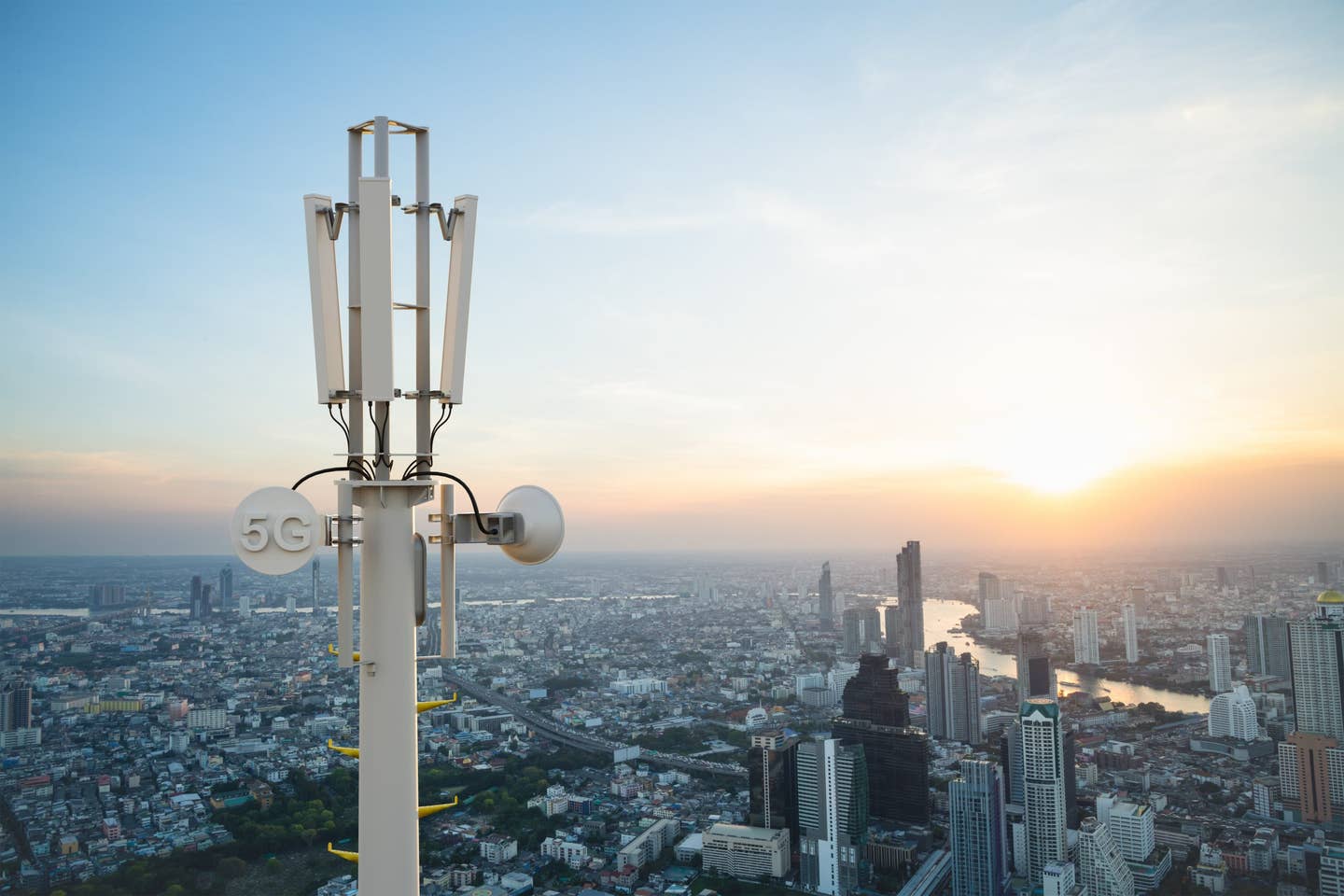
Aviation leaders are concerned about potential safety issues linked to radio (radar) altimeter performance. Adobe Stock
Pressure from the aviation industry mounted on the federal government Tuesday to delay deployment of 5G technology to the C-band frequency spectrum owing to concerns about potential safety issues linked to radio (radar) altimeter performance.
NBAA and AOPA joined a coalition of leading aerospace manufacturers, airlines, pilots, and operators calling for a delay of the December 5 deployment until “the safety and efficiency of the National Airspace System is ensured.”
The coalition released a letter to the National Economic Council (NEC) requesting that the Federal Communications Commission (FCC) and the FAA to convene a joint industry working group aimed at “a long-term solution that will protect the flying public by ensuring radio altimeters operate accurately while allowing 5G to roll out safely.”
The letter urged regulators to “reach acceptable mitigations.”
Heidi Williams, NBAA senior director for air traffic services and infrastructure, called on regulators to “first and foremost ensure such systems do not compromise the safety and integrity of operations within our national airspace system.”
Cellular carriers in 46 U.S. markets have long been scheduled to repurpose portions of the C-band frequency spectrum near the frequency band used by safety-critical FAA-certified radio (radar) altimeters beginning December 5.
Specifically, the FCC plans to repurpose the 3700 to 3980 MHz bands, beginning in December with 3700 to 3800 MHz.
Verizon and AT&T Voluntarily Pause
The NBAA announcement comes after major cellular service providers AT&T and Verizon announced last week they would voluntarily delay their plans to deploy 5G technology on their networks.
They agreed to pause their deployment until January 5 “to further assess any impact on aviation safety technologies,” according to a joint statement by the FAA and FCC. “The Federal Aviation Administration and the Federal Communications Commission will continue to coordinate closely to ensure that the United States keeps pace with the rest of the world in deploying next-generation communications technologies safely and without undue delay.”
The issue raised enough concern for the FAA on November 2 to issue a special airworthiness information bulletin (SAIB) informing aircraft manufacturers, radio altimeter manufacturers, operators, and pilots about the deployment.
The SAIB calls on operators and pilots to review 14 CFR Part 5 requirements for Part 121 certificate holders, if appropriate. “Other certificate holders should use the safety management systems (SMS) tools to assess the risk to each type of radio altimeter configuration and how it impacts typical flight operations.”
In addition, the SAIB directs pilots and operators to “remind passengers that all portable electronic devices allowed for transport in checked baggage (including smartphones and other devices) should be turned off and protected from accidental activation and that compliance is mandatory for lithium battery-powered portable electronic devices.”
Passengers should also be reminded “to set all portable electronic devices in the cabin and any carried on the aircraft to a non-transmitting mode or turn them off,” the SAIB said.
Longtime Concerns
Since the plan was first announced more than a year ago, aviation, and aerospace companies have expressed concerns about harmful radio interference resulting from the deployment that “could lead to an escalation of negative outcomes, from missed approaches, delays, diversions, and flight cancellations, to the shutting down of runways on an indefinite basis.”
The coalition joining Tuesday’s announcement also included: the Aerospace Industries Association, the Aerospace Vehicle Systems Institute, the Air Line Pilots Association International, the Airborne Public Safety Association, Airbus, the Aircraft Electronics Association, Airlines for America, Aviation Spectrum Resources, Inc., the Boeing Company, the Cargo Airline Association, Collins Aerospace, the Experimental Aircraft Association, Free Flight Systems, the General Aviation Manufacturers Association, Garmin International, Inc., the Helicopter Association International, Honeywell International Inc., the International Air Transport Association, the National Air Carrier Association, and the Regional Airline Association.

Subscribe to Our Newsletter
Get the latest FLYING stories delivered directly to your inbox






